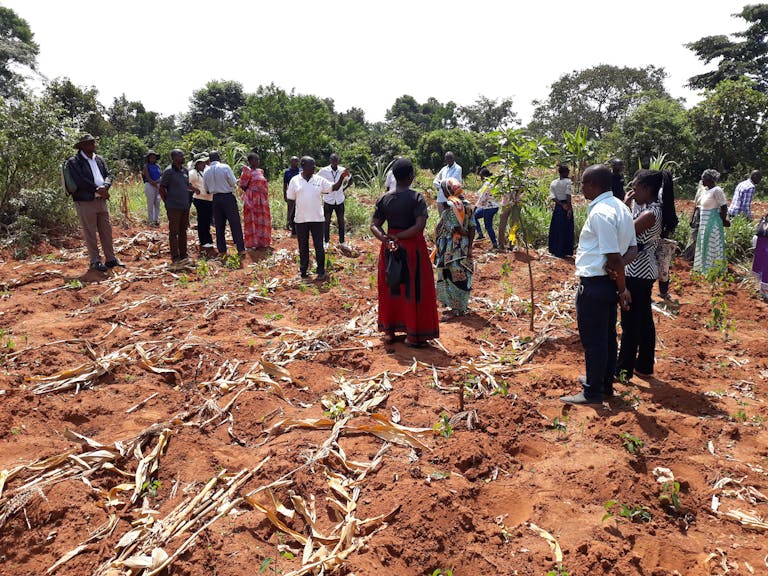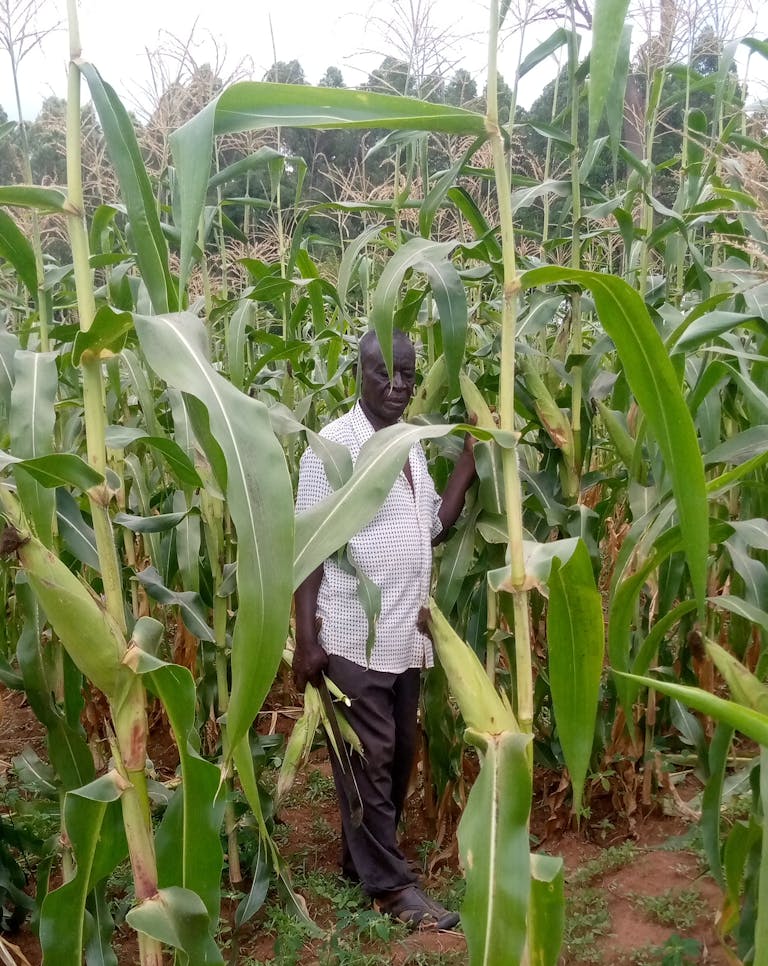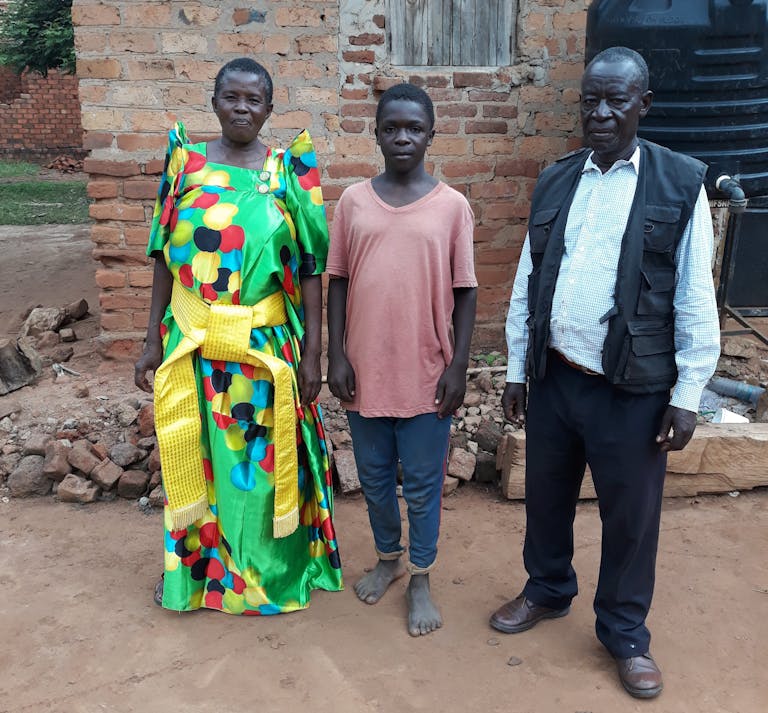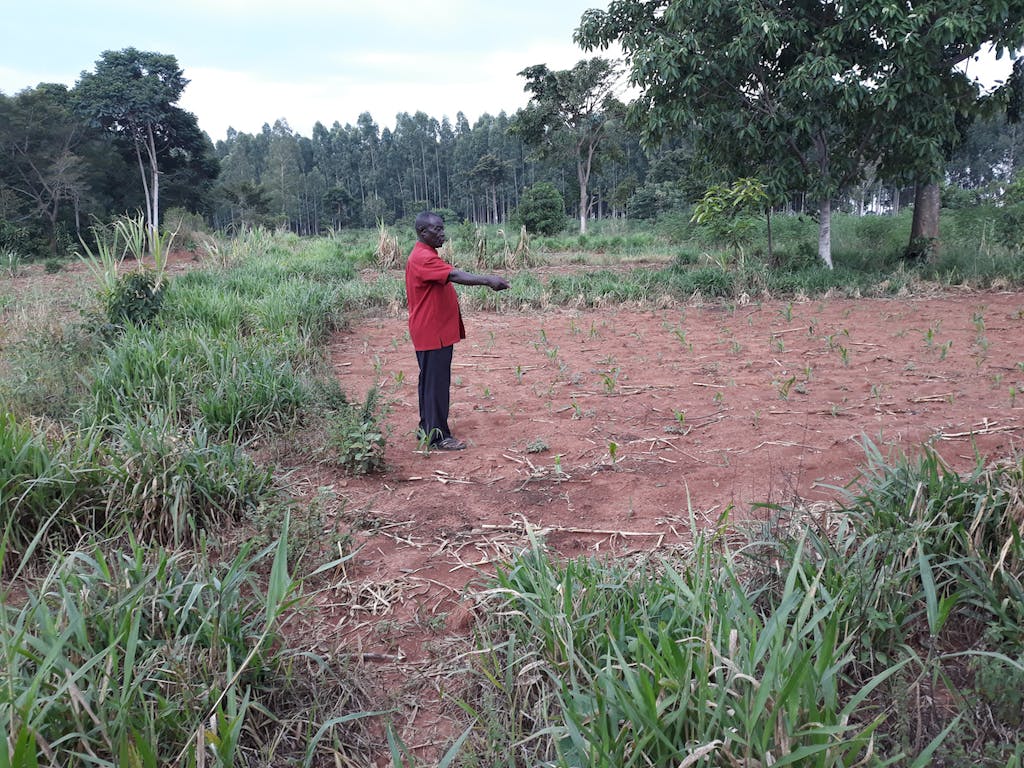Sajja John was accustomed to toiling over his land in the community of Kagulu, Uganda. He and other farmers in the community worked to produce enough maize to sell at the market in order to care for their families, but the area became ravaged by pests. Critical relief was made possible with agency partnerships and donor support through FH’s Multiply Your Donation, resulting in lasting hope and prosperity.
From Peril to Prosperity
For years, Sajja John and other maize farmers in his community faced the challenge of striga weed and pests like the armyworm and the maize stem borer. Maize is like corn and can be a lucrative crop as it is used for industrial, non-food purposes. However, the problems the farmers faced resulted in significant yield loss, up to 70% of their crops. Despite expensive treatments with pesticides, Sajja John’s family yielded a mere 400 kg of maize per acre on their three acres of land. With pest infestations and seeds failing to yield, Sajja and many other families in the community struggled to make ends meet.
“My family did not have enough food to eat,” Sajja John shared. “And I lost a lot of money purchasing pesticides and seeds. It was agony to see my grandchildren and family be hungry and insecure, but despite all my efforts, we lost money every season on pesticides while harvesting less.”
A Chance for Change
Partnerships through FH’s 22x program made it possible for Sajja John and others to learn about sustainable farming practices and financial management, creating exponential growth for the community. One of the practices FH taught was push-pull technology, which involves sowing desired plants into the farmer’s field that attract pests like armyworms while also integrating other plants that repel pests. These pest-fighting plants are blended throughout the crop as others are placed alongside the fields. After learning these principles, Sajja John formed a farmer’s group with the help of FH and together they implemented the push-pull technology in their crops.

Bringing Light into the Darkness
It only took one season of implementing the push-pull technology for Sajja John to experience an exponential impact on his fields. Maize production skyrocketed, multiplying his household income exponentially.
“I used to get between 350kg (771.6 lbs) to 420kg (926 lbs) of maize from an acre at 900 shillings ($6.32). In the first season after implementing push-pull, I earned 315,000 shillings ($2,210.53)! I have never earned so much and only from half an acre. I used part of that money to pay for my grandchildren’s school while the rest was for clothes and food for my family,” Sajja John shared. “Then in my second season, I expanded the push-pull technology to 2 acres and earned 2,210,000 shillings ($15,508.77), where I was able to replace a stolen cow, pay for my grandchildren’s school fees, and purchase a solar panel, bringing light into my family’s home.”

Sajja John has done more than build his own family’s wealth. He has had a cascading impact throughout his community by becoming a mentor to other farmers and a leader within his church.
“I want to bring everyone together and form a cooperative,” Sajja John said of his plans for the future. “Together we can increase production, control pests, and attract better markets to our community to sell our yields and create employment opportunities.”
Multiplying the Impact through 22x
Sajja John’s story is a testament to the transformative power, and the exponential impact we can make together through 22x Matching Grants. Every dollar donors like you give in this way is matched 22x to do more for more. Experience the joy of bringing exponential impact and hope to more communities challenged by poverty.
Together, we can help more families like Sajja John’s, to build prosperity for themselves and create lasting change for future generations.



